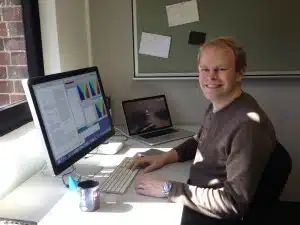
This mysterious particle is almost impossible to detect, but Robert has been able to predict the behaviour of small groups of anyons using a small supercomputer and determine more about how they behave in that crucial middle ground when there are enough particles to be interesting, but not so many that we lose sight of the individual anyons.
“We could explain what happened when you had one or two of them, and we had some ideas as to how they would behave when you had a sea of millions of them en masse, but nobody knew what they got up to in between,” says Robert.
For decades, computers and microchips have got faster and more powerful by making the components of the computer smaller and smaller. But this increase in speed and power is about to stop because it will hit a natural limit: we can’t yet make components smaller than single atoms. We will probably hit this limit within the next 10 to 15 years.
Anyons only exists in two dimensions, which allows us to past this limit of single atom components.
Robert explains: “If atoms are like the people in a stadium, then anyons are like a Mexican wave going around the crowd: The wave is something you can point to, and it’s made up of people, but it’s definitely not a person.”
The more we study and simulate anyons, the stranger their behaviour turns out to be – and this is good, because that strangeness will allow them to stably perform millions of computations simultaneously and thus overcome the current limitations of quantum computing.
And for certain applications, the benefits of anyon-driven quantum computers could be enormous. The initial winners will be companies using big databases, like Google, or Facebook, or Apple, so you may not feel the difference personally at first, but those benefits will all get passed on seamlessly to you to provide a smarter, faster, better user experience of your computer, your phone and even your car.
Robert presented his research at Fresh Science New South Wales 2015.
Fresh Science is a national program that helps early-career researchers find and share their stories of discovery. Over 50 early-career researchers nominated for Fresh Science NSW, which was held at the Australian Museum (training) and Three Wise Monkeys Hotel (public challenge event)
Fresh Science New South Wales was supported by the Australian Museum and the University of New South Wales.
Contact: Robert Pfeifer, Macquarie University, robert.pfeifer@mq.edu.au

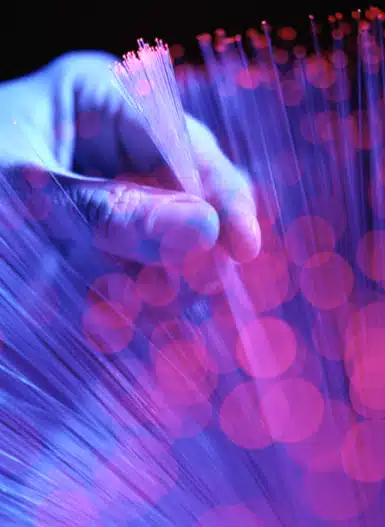

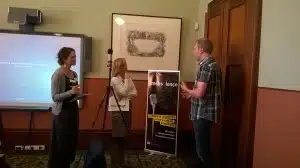
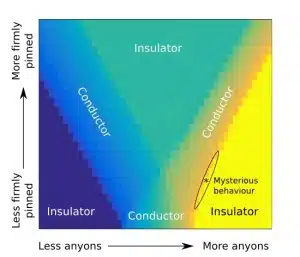
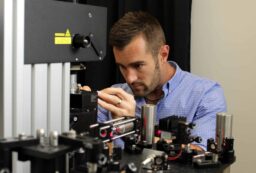
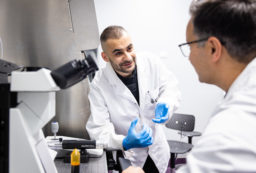
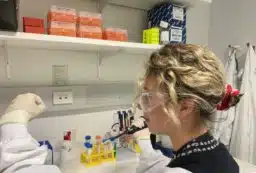
 Fresh Science is on hold for 2022. We will be back in 2023.
Fresh Science is on hold for 2022. We will be back in 2023.